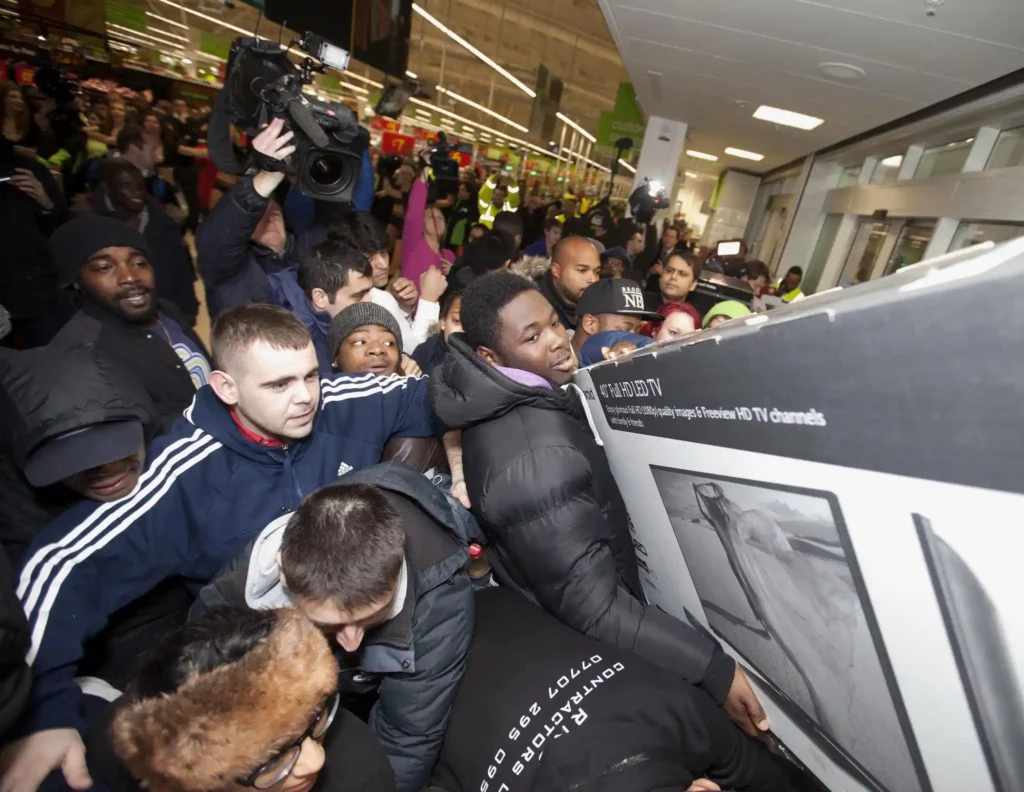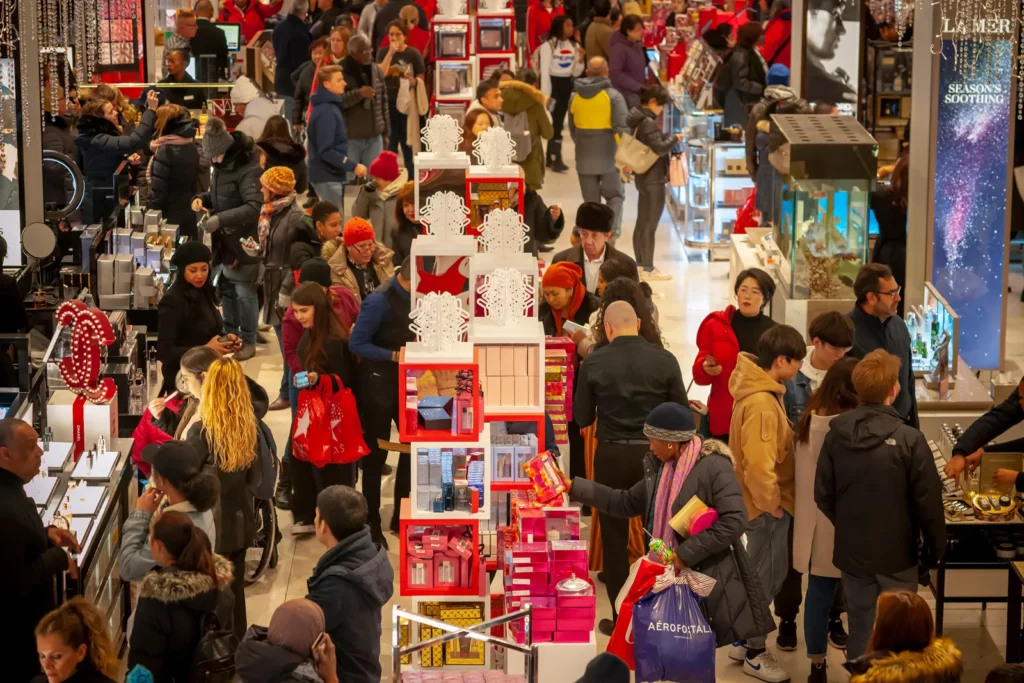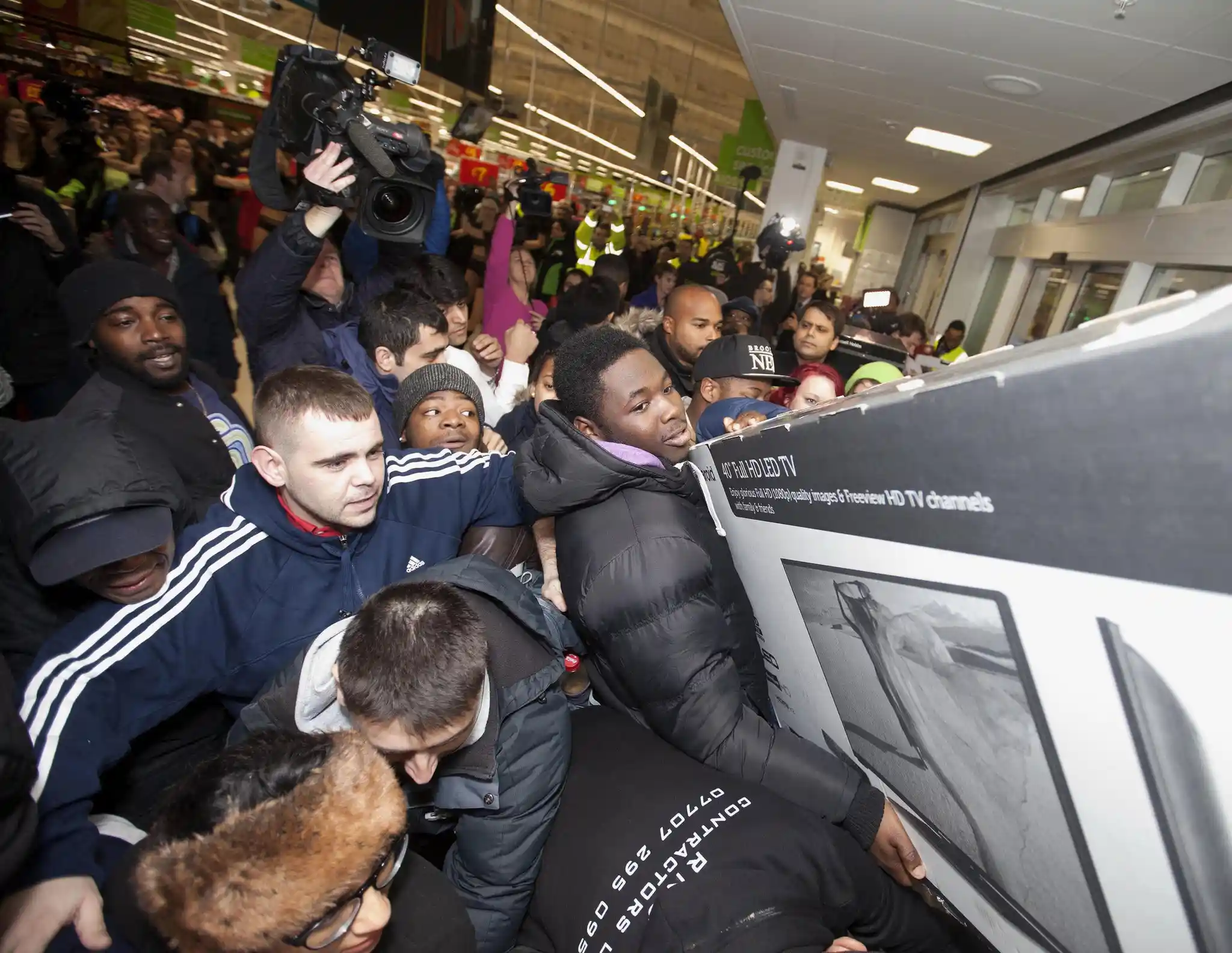Why We Buy What We Don’t Need – Elise L

Every November, when Black Friday rolls around, we become intensely preoccupied with prices – comparing them, tracking them and announcing triumphantly that we have saved £12 on headphones we didn’t know existed the day before. Yet, this raises an oddly overlooked question: how did Black Friday become the one day we know every price drop – but not a drop about the day itself?
“Black Friday” actually began in the United States, the day after Thanksgiving – an event the UK itself does not celebrate, yet somehow we’ve adopted its shopping aftermath with remarkable enthusiasm. The name itself has two commonly accepted explanations: the cheerful accounting version, where shop profits move “into the black”; a time of mass profit, or the slightly more dramatic Philadelphia version, where the police used the term to describe the chaos caused by swarms of bargain hunters in the 1960s. Regardless of which story you prefer, the original cultural meaning has long faded, replaced with an international celebration of impulsive consumer behaviour.

This year however, Black Friday has taken an especially interesting turn. Despite ongoing cost of living pressures, household budgets allocated for our Black Friday have risen sharply. Surveys suggest that many shoppers plan to spend significantly more than in previous years – partly out of necessity as Christmas costs loom and also due to the persuasive illusion that buying items at a reduced price is basically equivalent to saving money. Retailers, fully aware of this psychology, have dialled up their marketing strategies, offering longer sales, bigger discounts and an even greater sense of urgency. The result is an economic paradox where people try to ‘save money’ by spending more of it.
The irony, of course, is that Black Friday no longer represents its origins at all, and instead functions as an annual theatrical production of consumer enthusiasm. However, there is something genuinely fascinating, and faintly amusing, about watching millions of people unite under the shared belief that this is the one magical day of the year when rational spending rules do not apply.

In the end, Black Friday reveals more about us than the sales themselves. So the next time you find yourself scrolling through deals or queuing outside a shop at the crack of dawn, remember that Black Friday is really about the thrill of the chase – and the fact that we all secretly enjoy being part of the chaos.















Post Comment
You must be logged in to post a comment.